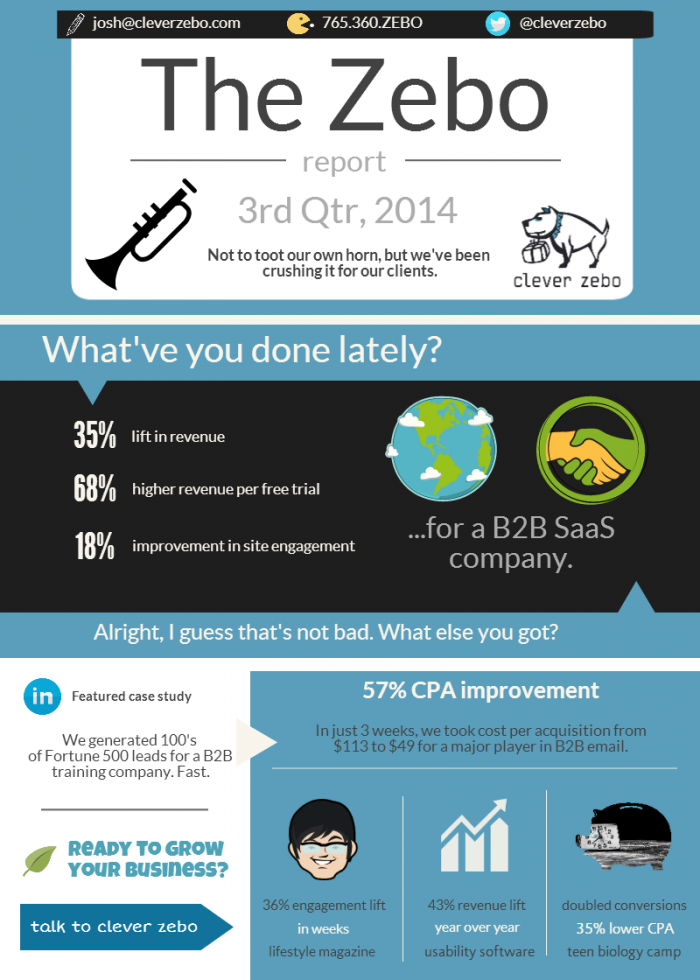I used to worry that sales — the kind where one person helps another — was dead. In the early 2000s, the Internet was on its initial seeping-into-everything rampage.
Why would you need a salesman if you can click for whatever you need?
In the US, ecommerce sales continue to grow briskly with double-digit year-over-year percentage growth. Consider, though, that US ecommerce represented only 6.7% of overall retail sales. See the numbers.
It turns out ecommerceRead more…
I used to worry that sales — the kind where one person helps another — was dead. In the early 2000s, the Internet was on its initial seeping-into-everything rampage.
Why would you need a salesman if you can click for whatever you need?
In the US, ecommerce sales continue to grow briskly with double-digit year-over-year percentage growth. Consider, though, that US ecommerce represented only 6.7% of overall retail sales. See the numbers.
It turns out ecommerce is amazing for certain highly repeatable processes and insufficient for many complex, lower volume and higher price tag buying cycles.
While, Yes, certain sales processes have become automated — buying an airline ticket, trying different pairs of shoes, customizing a laptop, etc. — real estate, enterprise products, many financial instruments, etc. end up boiling down to two humans having a conversation. AND many potentially automate-able buying decisions are still easier or more fun to do person to person.
Is the monopoly of automation just unraveling slower than we thought? Should a college grad entering Sales fear for their profession in the coming decades?
Automation handles the repeatable, not the complex
More complex sales involve more buying options and moving pricing. As soon as you list a price, it’s very difficult to go up from there — even if it’s a screaming deal at a higher price, people resent higher prices.
So while it’s quicker to sell via ecommerce, it can be economically disadvantageous. Automation works in highly competitive marketplaces where pricing moves in a narrow band. But typically automation is going to benefit the buyer, not the seller, who has the advantage of pricing transparency.
The pricing game
In my experience, the longer a company can wait to reveal pricing, the more pricing advantage they retain.
Consumers know this and will generally choose the price-transparent option UNLESS they have reason to believe the price transparent option is of lesser quality or ultimate value. Price transparency with automation typically wins on volume but loses on price.
So you, as a seller, face a dilemma. Once you guarantee a price in an automated system, you’re locked in regardless of whether your cost basis changes, the customer makes demands outside the stated agreement, etc.
A conversation between two people enables both parties to get what they want. Obviously, the seller gets to retain some pricing advantage. The seller also gets to make sure the buyer understands what she is busting and will be a happy customer, not to mention combing the buyer of benefits.
But the buyer also receives major benefits.
1. The buyer gets to interview the seller at no (or little) cost. “Is this someone or a company I want to do business with?”
2. The buyer can get inside knowledge the seller may not have been willing or able to share publicly.
3. The buyer, if savvy of the market, can get an even better price than the seller would ever dream of publicly listing. (Think of a car dealership on the second to last day of the month)
Sorting through the BS
Companies do a lot to try and differentiate their products from the competition, and they’re very good at it. There are many ways to make an inferior deal look like a good deal.
Often, it’s a pricing play: pay nothing to get started (and then a lot to keep going) or free shipping when you purchase more than $25. Or you can bundle lots of extras the buyer may or may not need.
Consumers, especially when entering a more complex purchasing process, quickly figure out all the ways in which that deal they thought they’re getting really isn’t such a deal.
Often, the buying decision comes down to DO I WANT TO WORK WITH THIS COMPANY/PERSON?
And THAT is why talented, effective sales people are going to be very important for a long time. No amount of marketing or advertising can outdo the experience a buyer has with a representative of the seller.
Sales now goes by many names
The best sales people often don’t advertise that they’re, in fact, selling. Selling is done by all sorts of people:
– Customer service reps
– Account managers
– The CEO
– Loan agent
– Consultant
– Etc.
A sales person is really just someone who:
– Helps you to buy something the first time
OR
– Makes sure you buy again / don’t cancel
Consider that even the person setting up email auto-responders, shopping cart upsell settings or chat scripts is filling a sales function. This blog post is more specifically about phone/in-person but still!
Sales success is the confluence of these factors:
1. Providing the customer (internal or external) with huge value
2. Maximizing the profit/cost ratio
3. Being happy and making other people happy
So why isn’t P2P selling dead?
Because it’s really, really hard to balance making a customer happy, turning a profit and doing it all consistently.
As fast as the world automates, I believe the need for personalization and customization is going to increase even more quickly. It’s just human nature to want “special” and personal.
...Read less